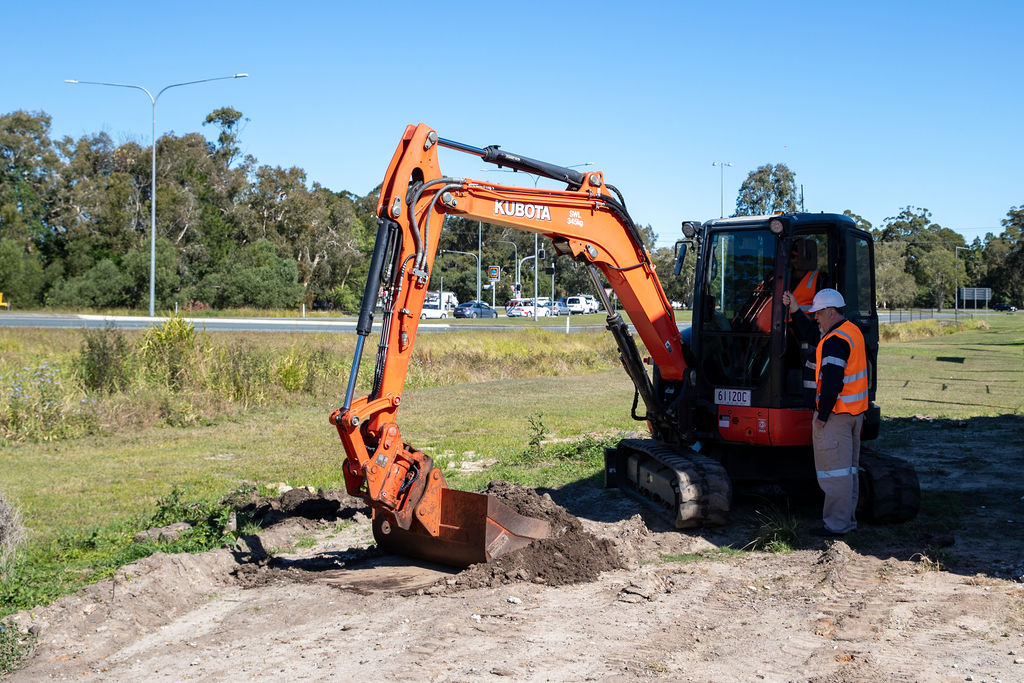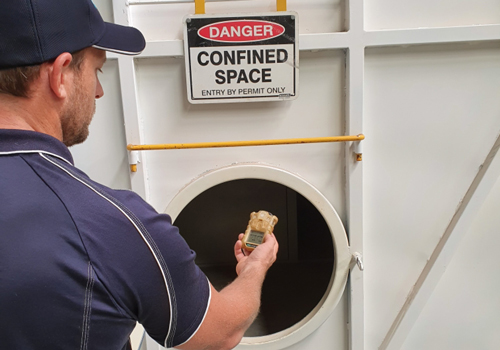This nationally recognised training includes the unit MSMWHS217 Gas test atmospheres, ensuring competency in gas testing procedures, safety protocols, and risk management in potentially hazardous working conditions.
This course provides participants with the skills and knowledge required to safely test workplace atmospheres using electronic gas detection equipment. It is designed for situations where individuals must assess whether an area or workspace is safe to enter. Students will learn to accurately interpret gas readings and take appropriate actions based on their assessments.
This course is suitable for workers, supervisors, and safety personnel who are required to test and monitor gas atmospheres in the workplace. It is ideal for those working in industries such as mining, construction, utilities, manufacturing, and confined spaces, where safe monitoring of potentially hazardous atmospheres is essential.
After completing MSMWHS217 Gas test atmospheres, graduates gain the skills and knowledge to work safely in environments where hazardous atmospheres may be present. This course provides a foundation for further career progression in workplace safety, risk management, hazardous materials handling, and operational support roles across industries such as mining, construction, manufacturing, and emergency response.
Completion of this course provides a foundation for further study in occupational health and safety, hazardous materials management, and risk control. Graduates may progress to higher-level safety qualifications, specialised courses in gas detection, confined space entry, or other workplace safety and emergency response programs to enhance skills and career opportunities.
Student Handbook – Please refer to our student handbook for our policies and more information.
Attend all scheduled training sessions and actively participate in both theory and practical components.
Wear appropriate Personal Protective Equipment (PPE) as required for practical activities.
Follow all health, safety, and workplace procedures during training.
Treat trainers, assessors, and fellow students with respect and professionalism.
Notify the RTO promptly if unable to attend or if additional support is required.
Maintain accurate records and documentation as required throughout the course.
This half-day (4h), face-to-face course is delivered using a blended approach, combining both theory and practical activities to ensure learners gain the knowledge and skills required to safely test workplace atmospheres.
Classroom-based learning – covering key concepts, legislation, and procedures for gas testing.
Practical exercises – hands-on use of electronic gas detection equipment in simulated or controlled environments.
Interactive discussions – reinforcing understanding of hazards, risk control, and interpretation of gas readings.
Assessment is competency-based and includes:
Practical demonstrations – demonstrating safe and accurate use of gas detection equipment.
Observation of skills – performing workplace simulations under trainer supervision.
Knowledge assessments – written or oral questions to confirm understanding of procedures, hazards, and safety requirements.
If you are assessed as Not Yet Competent (NYC), you will have the opportunity to be reassessed. You may contact Host Safety and Training (RTO 40772) to arrange your reassessment. A reassessment fee may apply.
Reassessment will focus only on the part of the assessment that was not successfully completed.
Reassessment must be completed within 60 days of the original assessment.
If the 60-day period lapses, the full assessment may need to be repeated.
Host Safety and Training RTO (40772) offers Recognition of Prior Learning (RPL) for students who can demonstrate prior skills and experience relevant to the course outcomes. Students may also be eligible for Credit Transfer (CT) for unit of competency they have previously completed through another Registered Training Organisation (RTO).
RPL and CT applications are assessed individually in accordance with our RPL/CT Policy and the requirements of the training package.
Student Handbook – Please refer to our student handbook for our policies and other relevant information.
This course is also available for delivery at the client’s site by arrangement. Please contact info@hostsafetytraining.com.au for information on upcoming course locations.
Students who successfully complete all training and assessment requirements of the course will be awarded a nationally recognised Statement of Attainment for the following unit of competency, issued by Host Safety and Training (RTO 40772):
MSMWHS217 Gas test atmospheres
Take steps towards a promising career.
We believe that a safe workplace is a productive workplace. That’s why we offer industry-leading safety training courses tailored to the needs of workers in a variety of industries.
We have the answers to your questions! If you would like to learn more about who we are and what we do, get in touch with the team today.
Safety training is crucial because it equips employees with the knowledge and skills needed to identify and mitigate potential risks in the workplace, ultimately promoting a safer work environment, reducing accidents and injuries, and increasing productivity and efficiency.
The CSQ is an independent, not-for-profit, industry-funded body supporting employers, workers, apprentices, trainees and career seekers in the building and construction industry.
You may be eligible for funding if you are:
Get in touch with us today to see if you are eligible.
Based on the Sunshine Coast, we have offices in Gladstone, Mackay, Victoria and Northern Territory and have serviced clients across the country.
We also offer on-site training and request.
The length of training will depend on the course itself. Some course require a few hours where others take between one and five business days to complete.
The length of our training courses are included in the course description.
Some certifications do not have an expiry date, while others will expire in one – five years. However, this is dependent on the course.
Contact us to find out if you need to be re-trained. Our expert team can provide further information on what courses require re-training or re-certification.





Host Safety and Training recognise that upskilling yourself and your team with nationally recognised qualifications is a smart investment.

Skid Steer (Bobcat) Operations covers conducting skid steer loader operations in the civil construction industry. It includes; Planning and preparing, conducting machine pre-operational checks and operation of skid steer loader including stripping/spreading topsoil and materials

This unit describes the skills and knowledge required to operate excavator operations to lift carry and place materials and applies to those working in site-based roles.

This unit specifies the skills and knowledge required to operate a forklift truck safely in accordance with all relevant legislative requirements. Competence in this unit, does not in itself result in a HRWL licence to operate this plant.
Forklift truck means a powered industrial truck equipped with lifting media made up of a mast and an elevating load carriage to which is attached a pair of fork arms or other attachments that can be raised 900 mm or more above the ground, but does not include a pedestrian-operated truck or a pallet truck.
A person performing this work is required to hold a forklift truck High Risk Work Licence (HRWL).
This unit requires a person operating a forklift truck to:

This course is designed to give participants the knowledge and skills to operate elevating work platforms that are not classified as requiring a high-risk work (HRW) licence. After successfully completing this national-recognised course you will be trained and competent to operate; EWP (boom lift) under 11 meters and Scissor lift (up to any height)

This nationally recognised training covers theoretical and practical aspects of RIIWHS204E Work safely at heights unit of competency. It is designed to equip students with the competencies to identify hazards, follow safe work procedures, and perform height-related tasks safely across a range of environments, including construction, maintenance, mining, manufacturing, and other workplaces where duties are undertaken two metres or more above ground lev

This comprehensive course equips students with the essential skills and knowledge needed to assess the safety of a working atmosphere using electronic test apparatus. It is specifically designed for individuals who may need to conduct thorough gas testing before entering a designated area or workspace, ensuring a secure environment for proposed work activities.